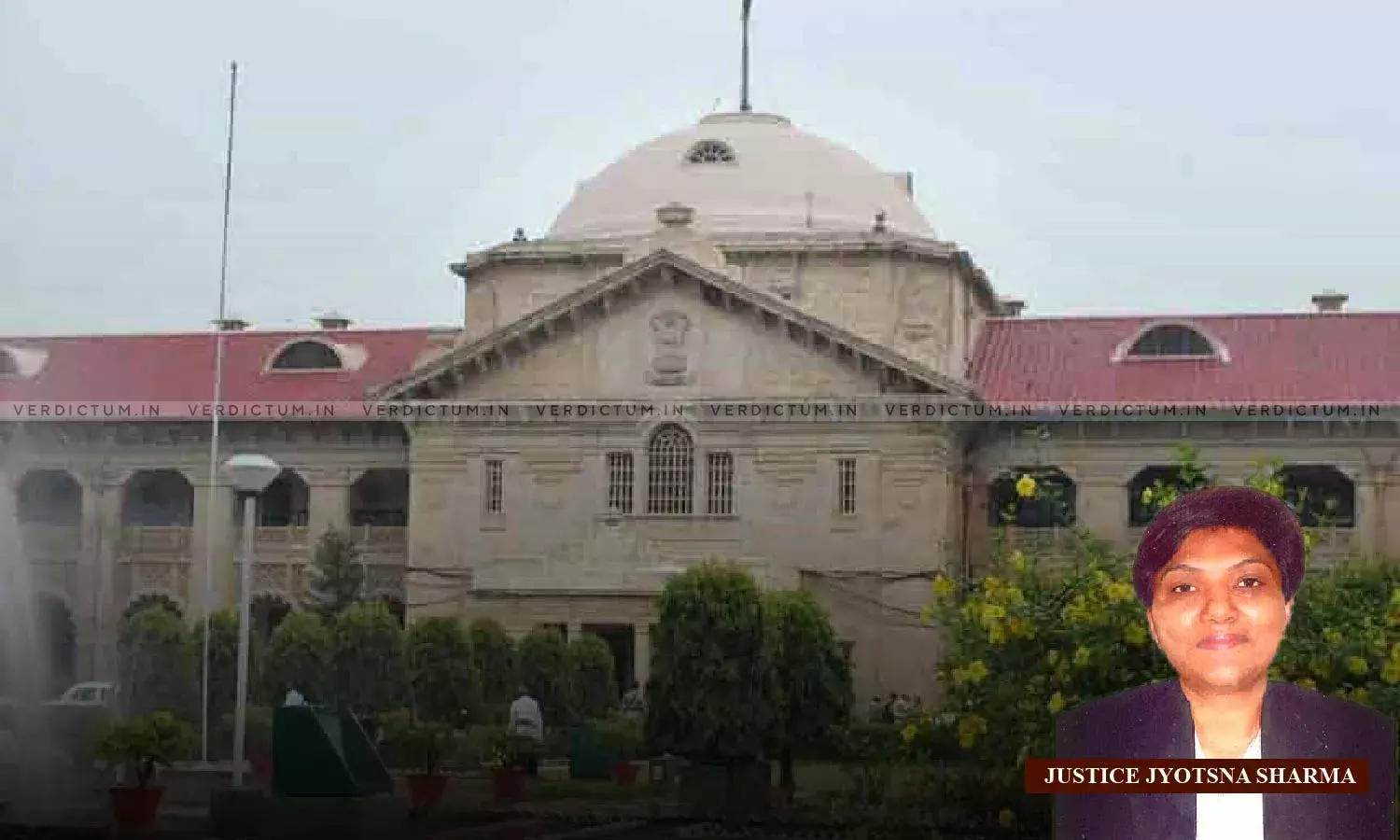‘The Failings And The Frailty Of Justice Delivery System Is Showing By Itself’: Allahabad HC Overturns Conviction Of Man Who Served Whole Of Sentence Of 8 Years

The Allahabad High Cout at Lucknow Bench set aside the conviction of a man charged under IPC 306 after a case (304 IPC), who had already undergone whole of the term of sentence of 8 years and was set free.
A Bench of Justice Jyotsna Sharma expressing guilt observed, “Suffice it to say that chinks in the majesty of law are wide open. The failings and the frailty of justice delivery system is showing by itself.”
The Appellant had appealed the conviction (under IPC 306) by Sultanpur's Additional Sessions Judge on April 24, 2003. He got 8-year imprisonment, Rs. 5,000 fine, and possible 6-month default imprisonment. Allegedly, he and others set his wife Meera Devi ablaze following money disputes. Meera succumbed to burn injuries in 2000.
Advocate M.S. Khan appeared for the Appellant and Advocate Jugal Kishore appeared for the Respondent.
The Court examined the witnesses' testimonies providing insights into the deceased's relationship with the accused, the circumstances leading up to her burn injuries, and her subsequent death. The Court stated that the evaluation of the prosecution's evidence required understanding the scope of Section 306 IPC, which deals with abetment of suicide.
“For the application of section 306 IPC, the law requires that there should be a proximity between the act of suicide with the acts and conduct or treatment meted out by the accused to the victim or acts which would amount to intentionally aiding or instigating or abetting the deceased to take his/her life.”
The Court noted that among the witnesses, only PW3 (Ravi Dutt Tiwari) supported the prosecution. According to his credible testimony, the accused frequently consumed alcohol, neglected his family, and sold property, leading to conflicts with his wife. On the day of the incident, a quarrel erupted when he demanded food despite a lack of ration, resulting in him physically assaulting her and leaving tauntingly. His wife, already distressed, was counseled but chose to self-immolate, as indicated by her dying declaration.
The Court noted that the statement given by her in her dying declaration is corroborated by the statement given by PW3. The Court further stated that there was no reason to doubt the above two important pieces of evidence i.e., the dying declaration and the other testimony of PW3.
The issue before the Court was whether these facts and circumstances will constitute the offence under section 306 IPC.
The Court said that it has a duty to take decisions on the basis of facts not on the basis of sentiments.
“In my view the act of the accused may be deplorable but do not amount to "instigation to commit suicide" unless there was something more to add upon. In my view, some more overt act, though may be an indirect one, was required on the part of the accused to bring his acts or conduct within the meaning of the word "instigation".”
The Court further mentioned that this appeal had come up for hearing after the accused had already undergone whole of the term of sentence and was set free. In fact, he was detained for a month over and above the period of imprisonment by inadvertent turn of events.
The Court allowing the criminal appeal held that the judgment given by the Sessions Judge convicting the accused was not sustainable and the accused deserved to be acquitted.
Cause Title: Pawan Sut v. The State of U.P., 2023:AHC-LKO:55949
Click here to read/download Order


